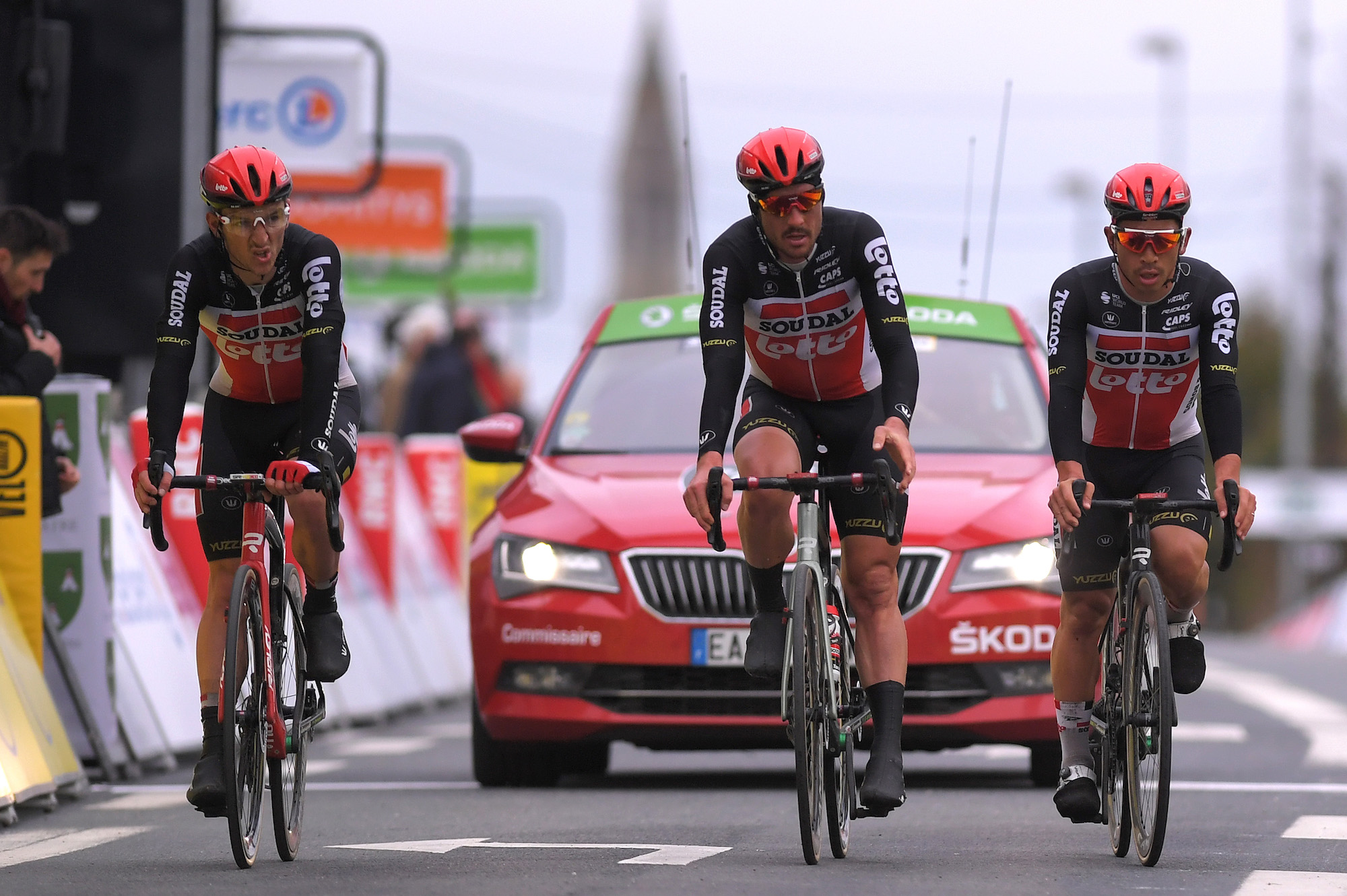Lotto-Soudal divides squad into three clusters to reduce risk of coronavirus
The WorldTour outfit are looking to 'corona-proof' their return to racing

Lotto-Soudal during Paris-Nice 2020 (Photo by Luc Claessen/Getty Images)
The latest race content, interviews, features, reviews and expert buying guides, direct to your inbox!
You are now subscribed
Your newsletter sign-up was successful
Lotto-Soudal have unveiled plans to separate their team into "clusters" as they begin preparations for the return to racing, which includes mitigating the risk of coronavirus transmission.
The Belgian squad will be divided into three, with the riders and support staff in each mini-team set to stick together for numerous races, reducing mixing within the team as a whole and therefore lowering the chance of a positive coronavirus test spreading throughout the entire roster.
Teams will look to stay in one country as much as possible, also keeping personnel and equipment in as few locations as is feasible.
The main way the team has been divided is between the squads Lotto-Soudal have planned for the three Grand Tours, the Giro d'Italia, the Tour de France and the Vuelta a España. As the Grand Tours are placed closely together within the 71 days of the revised calendar, sometimes overlapping, teams are likely to not use many riders in more than one three-week stage race.
>>> Cycling version of Monopoly to be released
"Each group gets a different color and follows its own racing agenda," Lotto-Soudal team doctor Jens De Decker told Het Laatste Nieuws.
"The aim is to keep the development between the (so-called) clusters as limited as possible. The less rotation, the less chance of mutual contamination. We are even thinking of storing the necessary material for a short time in one place, in one country, by cluster. That would make it practically easier," said De Decker.
The latest race content, interviews, features, reviews and expert buying guides, direct to your inbox!
Alongside these measures, riders and support staff may also have to answer daily questionnaires in order to evaluate their condition, as well as receiving regular medical check-ups.
"This system makes it clear for us. Per group, we can also subject each member to serial tests, daily questionnaires, and/or medical check-ups," De Decker explained.
"We have to remain flexible. An important condition is that the rider in question is re-tested. Exactly how we will do that hasn't yet been thoroughly worked out."
Jonny was Cycling Weekly's Weekend Editor until 2022.
I like writing offbeat features and eating too much bread when working out on the road at bike races.
Before joining Cycling Weekly I worked at The Tab and I've also written for Vice, Time Out, and worked freelance for The Telegraph (I know, but I needed the money at the time so let me live).
I also worked for ITV Cycling between 2011-2018 on their Tour de France and Vuelta a España coverage. Sometimes I'd be helping the producers make the programme and other times I'd be getting the lunches. Just in case you were wondering - Phil Liggett and Paul Sherwen had the same ham sandwich every day, it was great.